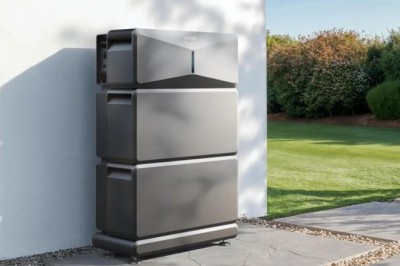views
Diamonds are one of the most precious and sought-after gemstones in the world. They are often the centerpiece of jewelry on special occasions like weddings, anniversaries, and birthdays. You may wonder where your diamond store gets its supply. Here are a few sources for diamonds:
Primary Source of Gems
The majority of diamonds used in jewelry are obtained through mining. Large-scale diamond mining operations are in Russia, Botswana, Canada, South Africa, and Australia. These mines extract diamonds from deep within the earth's crust, where they have been forming over millions of years. Once the diamonds are mined, they sort, cut, and polish them before selling them to traders.
Artisanal and small-scale mining involves using basic tools and techniques, often with little regard for safety or environmental impact. There are efforts to promote responsible mining practices in these communities.
Diamond Trading Hubs
After mining and sorting diamonds, they are sold to traders operating in diamond trading hubs worldwide. Antwerp, Belgium, and Mumbai, India, are the primary trading hubs. These cities are home to thousands of small and large diamond trading companies that buy and sell diamonds worldwide. Other important diamond trading centers include New York, Tel Aviv, Dubai, and Hong Kong.
Diamond Cutting and Polishing Centers
They are cut and polished before selling diamonds to jewelers to bring out their brilliance and shine. Diamond-cutting and polishing centers are in several countries, including India, Israel, Belgium, and the United States. Large factories employ several hundred workers who cut and polish thousands of diamonds daily, ranging from small stones to large, high-quality gems.
Diamond Wholesalers and Distributors
Once diamonds are cut and polished, they are sold to wholesalers and distributors who supply them to jewelers around the world. These wholesalers and distributors operate in key diamond trading hubs, offering diamonds in various shapes, sizes, and colors. They work closely with jewelers to understand their needs and offer tailored solutions to suit their requirements.
Diamond Auctions and Exchanges
Most jewelers get their diamonds from auctions and exchanges, where wholesalers and diamond cutters sell their finished products. These auctions and exchanges occur in major cities worldwide, offering a wide range of diamonds at competitive prices. Antwerp, Mumbai, and Tel Aviv are well-known diamond exchange centers. Auctions like Sotheby's and Christie's also include diamonds in their lots.
Sustainable and Ethical Diamond Sourcing
In recent years, there has been an increase in the demand for conflict-free diamonds. The Kimberley Process Certification is an international initiative to prevent the diamond trade that funds wars and human rights violations. This process requires diamond traders to provide a certificate of origin, which helps to make sure that the diamonds they sell are conflict-free.
Every reputable diamond store prefers to source diamonds from mines using environmentally friendly methods and where workers are treated fairly. Canada is becoming a popular choice for sourcing sustainable diamonds. This is because of its strict laws on environmental protection, labor laws, and human rights policies.
Lab-Grown Diamonds
The popularity of lab-grown diamonds is on the rise. Advanced technology helps to make these diamonds in a laboratory setting. This technology mimics the conditions under which natural diamonds are formed. Lab-grown diamonds are chemically, physically, and optically identical to natural diamonds, making them a perfect alternative for those who prefer an eco-friendly, conflict-free option.
Emerging Trends in Diamond Sourcing
New trends in diamond sourcing are emerging as more people opt for sustainable and ethical diamonds. Some companies are creating blockchain networks that record and track the journey of diamonds from mines to stores, allowing for transparency and accountability. Some brands are also experimenting with unconventional diamonds, such as colored diamonds and even diamonds from meteorites.
Engage an Ethical Diamond Store
As consumers become more aware of ethical and sustainable practices, most jewelers adopt new techniques to meet their customers' demands. It is your responsibility to learn about where your diamonds come from and to buy from reputable jewelers who can provide you with certification of their diamond's origin. This allows you to purchase ethical diamonds not tainted by human rights abuses or environmental damage.
























Comments
0 comment